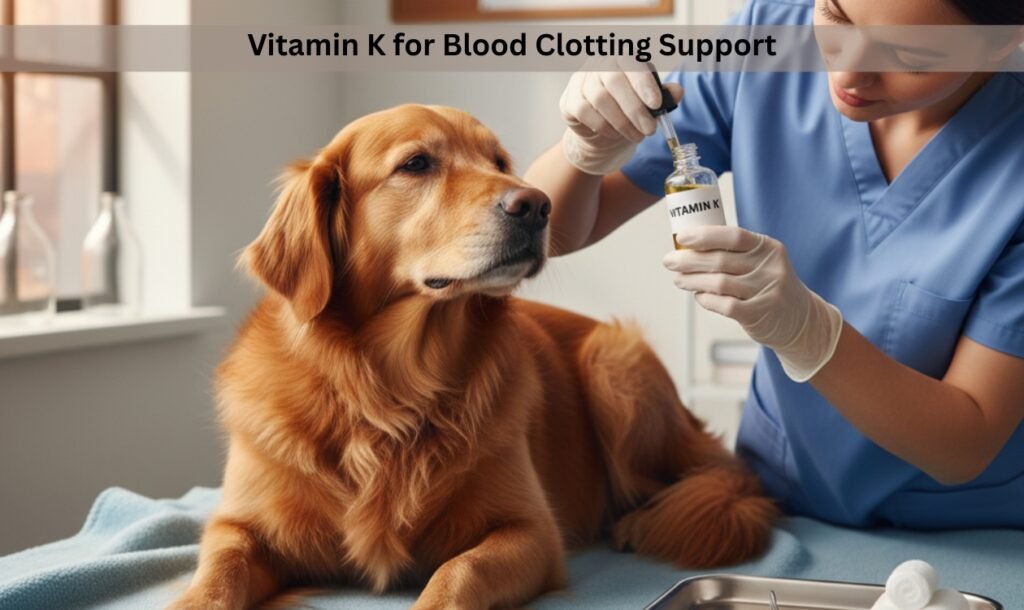Vitamin to recover wound : How to make it healed faster by nutrition
Vitamin to Recover Wound : How to make it healed faster by nutrition. Learn which vitamins support wound repair, boost immunity, and speed healing safely
The recovery of a wound is not merely a superficial exercise, but it begins with your internal body. The nutrients that you take are significant to the maintenance of tissues, inflammation, and infection prevention. This is the reason the appropriate vitamins become the key to quicker and better health recovery. Lack of the nutrients in your diet will cause wounds to take a long time to heal and increase the chances of complications.
Learning how vitamins aid in wound healing will enable you to prepare better nutrition in healing. Vitamins aid in various phases of tissue regeneration up to increasing the speed at which collagen is made in the skin, and mending skin layers. After surgery, injury, burns, and even minor cuts that we get in our daily lives, proper nutrition could help to make the process easier and faster in dog care. This guide will deconstruct the most successful vitamin compounds in wound healing and the ways in which they will support your healing process.
Vitamin A for Tissue Repair
Vitamin A is very important in the initial wound-healing process because it aids in the growth of new skin cells. It supports the development of epithelial tissue, helping damaged skin regenerate effectively. This vitamin also strengthens the immune system, which is essential for reducing infection during healing. A deficiency in vitamin A can lead to slow and impaired wound repair.
The other significant advantage of vitamin A is that it helps in increasing the production of collagen. The structural protein which tightens and makes healing tissues stronger is called collagen. This nutrient is an excellent source of foods such as carrots, sweet potatoes, spinach and eggs. These are vitamin A-rich foods that are essential to enhance a fast recovery and overall skin condition.
Vitamin C to Boost Collagen Production
Vitamin C is also among the crucial vitamins when it comes to the healing of a wound as it is closely associated with the production of collagen. New tissues are built on the foundation of collagen and thus vitamin C is essential in the rebuilding of the skin. It is also beneficial in enhancing the strength of blood vessels that aid in adequate circulation to the area of wound. Vitamin C is required to give the healing site nutrients and oxygen in an adequate manner.

Vitamin C also has strong antioxidant effects that help minimize infections around the wound site. By reducing oxidative stress, it protects new cells from damage during the healing process. Citrus fruits, strawberries, tomatoes, and bell peppers are excellent sources of vitamin C, and adding these foods to the diet can significantly accelerate wound recovery. Such bioactive nutrients play a vital role in strengthening tissue repair.
Vitamin E to Reduce Inflammation
Vitamin E is famously indicated to have a protective effect on the skin and antioxidant which makes it useful in wound healing. It assists in counteracting the free radicals which may slow down tissue healing and accelerate inflammation. Vitamin E helps the skin to regenerate more easily and evenly by lowering oxidative stress. The vitamin is particularly useful in the later stages of wound repair.
Nevertheless, vitamin E is most effective when taken as food as opposed to fresh wounds where it is applied. Foodstuffs like almonds, sunflower seeds, olive oil, and avocados are natural sources of vitamin E, which are taken regularly and assist in cell regeneration as well as in the prevention of excessive scarring. Incorporating the foods with high nutrient content in your diet helps in the healing of the skin.
Vitamin K for Blood Clotting Support
Vitamin K is crucial in the blood-clotting process, which is the first step in wound healing. Without proper clotting, the body cannot stop bleeding or begin repairing damaged tissues. This vitamin ensures that stable clots form quickly and safely, supporting a controlled healing response. People recovering from surgery or dealing with deep cuts should be especially aware of its importance. Adequate Vitamin K helps maintain hemostatic balance, allowing wounds to heal efficiently

Vitamin K prevents bleeding but once it occurs, it helps the tissue to heal by reinforcing the new layers of the skin. Vitamin K is found in large quantities in green leafy vegetables such as kale, spinach, and broccoli and incorporating these vegetables in your diets can enhance efficiency in clotting and accelerate the healing process generally. Vitamin K levels should be maintained in order to treat the wound well.
B Vitamins for Energy and Cell Formation
Nutrients for recovery such as B vitamins especially B6, B9 (folate), and B12 are essential for the development of new cells during the healing process. These vitamins assist in the production of DNA, which plays a vital role in repairing damaged tissues. They also support the formation of red blood cells, improving the delivery of oxygen to the wound area. With enhanced oxygen flow, the body experiences faster and more efficient healing.
The B vitamins also aid in ensuring that one has strong energy during the healing process, which aids in the body to repair itself naturally. B vitamins are great sources in foods like whole grains, eggs, fish, lentils and leafy greens. The combination of these into your daily diet increases tissue regeneration and boosts immune response. This renders B vitamins an essential ingredient of wholesome wound-healing food.
Zinc: The Healing Mineral
Zinc is not a vitamin but one of the most effective nutrients to heal a wound. It contributes in ensuring structural integrity of the skin and in sustaining the activities of enzymes that are involved in repairing the cells. The protection against infection by zinc is also important in improving the immune system, which is essential in a situation where the skin barrier is compromised. The mineral is instrumental in the formation of collagen and tissue development.
Zinc deficiency may significantly slow down wound healing and increase inflammation. Zinc is naturally present in foods such as meat, nuts, seeds, chickpeas, and dairy products. Including these foods in the diet helps speed up healing and strengthens newly forming tissues. Additional zinc supplements can be used when dietary intake is insufficient, but they must be given under proper instructions. Such micronutrient support is essential for maintaining healthy recovery.
Hydration and Supporting Nutrients
Sufficient liquids are needed to keep our skin elastic and to supply nutrients to the injured organ. Water is useful in ensuring that the tissues are kept soft and moist because this facilitates the process of healing. Dehydration may decelerate cell regeneration and expose them to risk of scabbing up or breaking. Taking sufficient water means that all the vitamins and minerals are able to work effectively.
Other supporting nutrients such as protein, omega-3 fatty acids, and iron can also increase the fast wound recovery. Protein plays an important role in the growth of new tissues whereas omega-3 decreases swelling around the wound. Iron assists in the process of healing as it transports oxygen to the healing area accelerating the healing process. All these nutrients combined in a reasonable proportion would ensure all-round nutrition to the healing of the wound.
FAQ: Vitamin to recover wound
Final Thoughts
Wound healing is a natural process but the appropriate nutrition can be of great help in ensuring that it occurs in a quick and smooth manner. Minerals and vitamins do the body some deep work by repairing the body tissues and giving the immune system some strength. The diet containing these vital nutrients makes the recovery process more effective. There is proper nutrition which can support every stage of the healing process.
One of the easiest ways to increase wound recovery is adding food with a high amount of vitamins to your daily food. These nutrients arise whether you are recovering after an operation, an injury or minor cuts, they will assist in healing the tissues and decreasing inflammation. Regular consumption of vitamins A, C, E, K, and B complex promotes skin health in the long run. Your body may be able to recover faster and more effectively with the help of the right nutrition.






